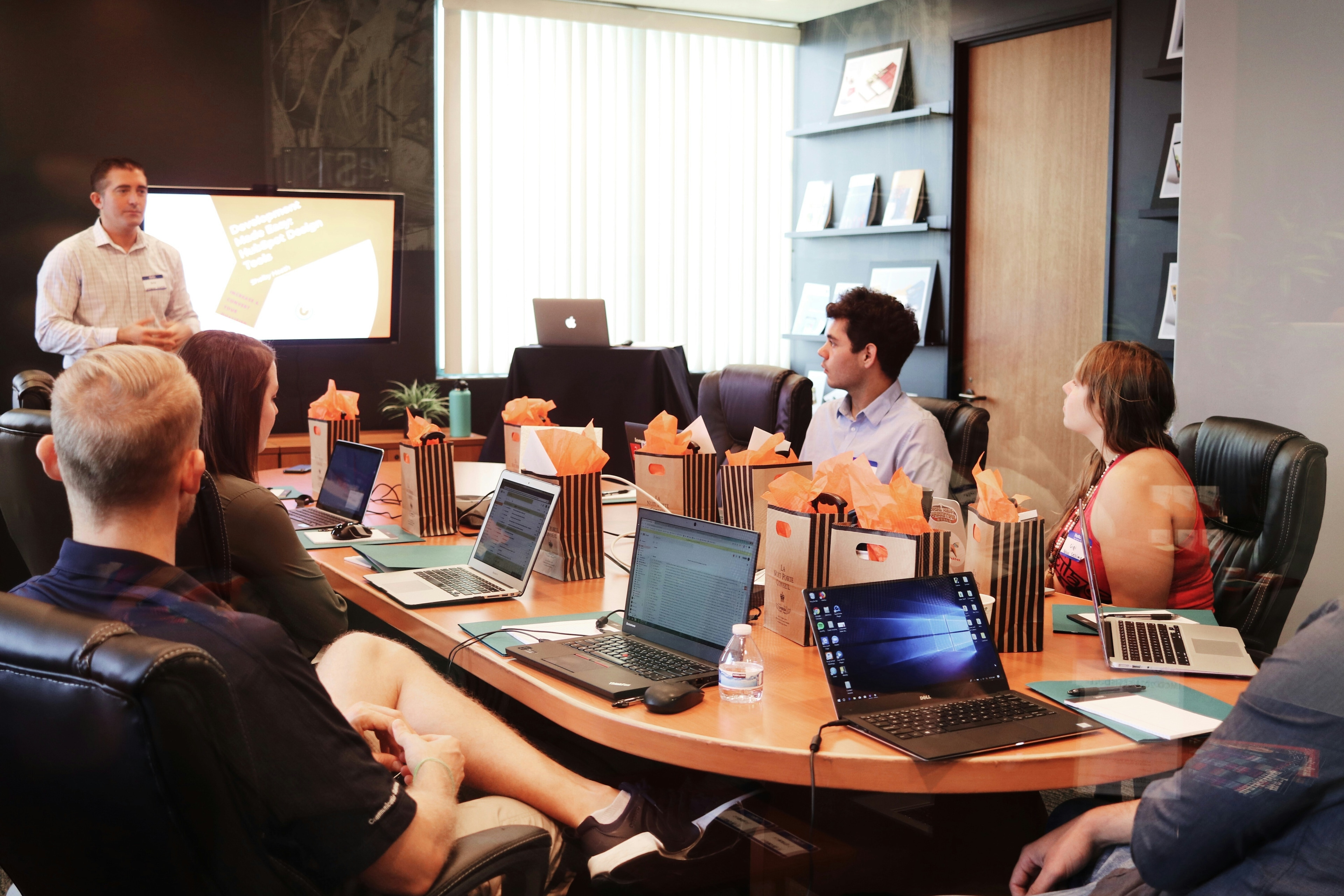Career lessons from an undercover agent turned CEO

CEO of CUI Global Bill Clough shares his career advice.
Image: REUTERS/Yuya Shino
Stay up to date:
Future of Work
There are people who who've worn many hats over the course of their careers. And then there's CEO of CUI Global Bill Clough.
He's led tactical law enforcement teams. He's flown around the world many times as a federal air marshal. He's worked as a bodyguard for Hollywood legend Elizabeth Taylor. He's even argued a case before the Supreme Court.
Then, in 2011, he took the helm at CUI Global, when the publicly traded power and energy company was struggling.
Clough told Business Insider that his range of past experiences have influenced how he operates in his latest role.
"I deal with people a little differently than most purely business people do, because I've worked with people under very different, very trying circumstances, and sometimes in life-or-death situations," he told Business Insider.
Here are six lessons Clough learned across his varied career:
As a child, Clough hoped to become an airline pilot like his father. He learned to fly young, earning his pilot's license before his driver's license.
"I focused my career on becoming a pilot," Clough said. "Went into the Coast Guard and spent time in the Coast Guard Reserve. I came out and was fully prepared to become a pilot."
However, his timing was off.
"At the same time, hundreds of other guys were coming out of Vietnam with thousands of hours of jet time, who also wanted to be pilots," he said. "And I didn't have that jet time."
Piloting was out of the question in such a competitive market, but Clough quickly came up with a backup option. During his time in the Coast Guard, he'd developed an affinity for law enforcement. Instead of clinging to his original plan, he tested at a number of different police departments and ended up getting hired by one in Northern California.
Hone your leadership skills
During his career in law enforcement, Clough worked on robbery, homicide, K9 squads, narcotics, and even joined one of the first SWAT teams in the country.
He said that working with "very elite, small units that were quite motivated and good at what they did" honed his leadership abilities.
"They're very structured, they're very enthusiastic, they're very driven to do well, and when you focus that in a way that's positive for everyone you can really make a difference," he said. "When you're in a tactical situation, I can't be worried you doing what you need to do. If I need to worry about you, I don't need you. I don't want you here because you will get both of us injured or killed."
He said that the same wisdom also applies to business.
"If I can't trust you to do what I need you to do, then I don't need you," he said. "Because then, what am I doing? What I'm doing is trying to do my own job and trying to do your job as well. And I can't do that."
Get your priorities straight
On June 14, 1985, terrorists from Hezbollah and the Islamic Jihad Organization hijacked TWA Flight 847. The incident helped spur US President Ronald Reagan to resurrect the largely defunct Federal Air Marshal Service.
Clough applied for the job, due to his tactical background. He was able to fly around the world, but the role came with a downside — the enormous amount of time spent away from his wife and young children.
"My wife said, 'Frankly, I didn't buy into this. You're traveling for six months, I don't know where you are, it's dangerous,'" he said. "And the long and the short of it was, I made a decision at that point to focus back on the family and change careers."
At that point, Clough decided that he wanted to pursue a legal career, and ended up enrolling in UC Hastings College of the Law.
Remain down-to-earth
To support himself and his family before he graduated from law school in 1990, Clough took on a rather unusual side gig: working as a bodyguard for actress Elizabeth Taylor.
He said he was struck by how polite and genuine she was. Clough recalled a time when assistants had hung several pictures of the actress around her dressing room. He saw that one featured in her role as Cleopatra, sitting in what looked like an ancient Egyptian-style chair.
"She literally walks up behind me and goes, ''It's a good picture, right? Interesting story. That was in the Egyptian wing of the National Museum, and they told us when we were touring that we could not touch any of the displays. I asked if I could get a picture on the chair and they said absolutely not, that's an old Egyptian artifact.' So she said, 'The whole party was turning away, so I grabbed the cameraman, ran over, sat on the chair and took the picture. And it ended up being one of the promo pictures for the film.'"
Another time, Clough was pushing Taylor in a wheelchair backstage at a fashion show.
"We were kind of rushing her through this backstage area in a wheelchair and I hear one of the fitters, one of the people putting clothes on the models, say, 'Oh my, isn't she beautiful?'" he said. "She stops us, she gets out of the wheelchair, she walks around the back to this fitter and says 'Thank you.' She thanks her. I was like, are you kidding me? This is the queen of Hollywood and she actually took the time. It was amazing. She was really a very sweet person."
Do your research
Clough said the highlight of his law career came about in 2005, when he helped argue the case Stewart v. Dutra Construction Company before the US Supreme Court. A dredge operator had been injured while dredging Boston Harbor, and it was unclear whether or not he was a Jones Act seaman — meaning that he would be granted certain protections afforded to maritime workers. Clough worked as second chair to a more senior attorney who argued that a dredge could be classified as a Jones Act vessel.
At one point during the proceedings, Clough said that Justice Antonin Scalia spoke up.
"He goes to my compatriot, 'Are you telling me that just because he's a crane operator on a dredge that he's a Jones Act seaman? Wouldn't that be like saying a croupier on a gambling boat is a Jones Act seaman just because he's a croupier?'"
While the lead attorney seemed stumped, Clough knew that Scalia had previously ruled that a croupier on a Mississippi River gambling boat was a Jones Act seaman.
"I stood up and said, 'Excuse me, Your Honor, could I add something? I believe Your Honor is quoting exactly the case that you decided.'"
The case ended up in an eight to none decision (Chief Justice William Rehnquist was out sick that day), with the court holding that a dredge was indeed a Jones Act vessel.
Clough said that having a legal background has been a boon to his current role in business.
"The more you law about the law, the better off you are," he said.
Pursue what you love
Becoming CEO of CUI Global was somewhat of a fluke for Clough. He had previously joined the company's board in 2006.
"I had a big investment in a company," Clough said. "I was getting ready to retire. I had made the investment with a friend. Then he came to me and said 'That investment we made together? We're going to lose that money.' But that wasn't part of my plan, losing that money."
Clough initially came in as general counsel for the struggling company, and then took over as CEO in 2011. He said that he enjoys his current role and that he's been able to implement some of the lessons on leadership he previously learned from his past jobs.
"It's really simple," Clough said. "Find what you're passionate about. Doesn't matter about the money, doesn't matter about the experience, if you're passionate about something, then you'll enjoy it. And if you're not, then it's just a job and it's never going to be anything more than a job. Obviously, we've all had jobs. Sometimes, you've got to have a job. But honestly, if you want to have a career and you want to be successful, find something you're passionate about."
Don't miss any update on this topic
Create a free account and access your personalized content collection with our latest publications and analyses.
License and Republishing
World Economic Forum articles may be republished in accordance with the Creative Commons Attribution-NonCommercial-NoDerivatives 4.0 International Public License, and in accordance with our Terms of Use.
The views expressed in this article are those of the author alone and not the World Economic Forum.
Related topics:
Forum Stories newsletter
Bringing you weekly curated insights and analysis on the global issues that matter.
More on Jobs and the Future of WorkSee all
Atul Kumar
August 12, 2025
Shuvasish Sharma
August 6, 2025
Samuel Alemayehu
August 5, 2025
Neeti Mehta Shukla
August 1, 2025
Lisa Bechtold
July 29, 2025
Katica Roy
July 23, 2025





